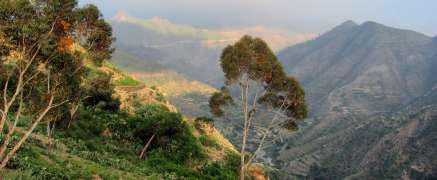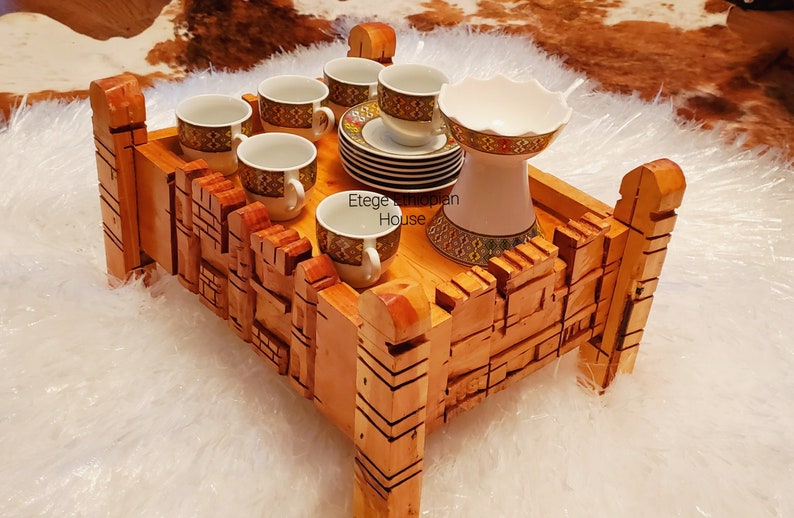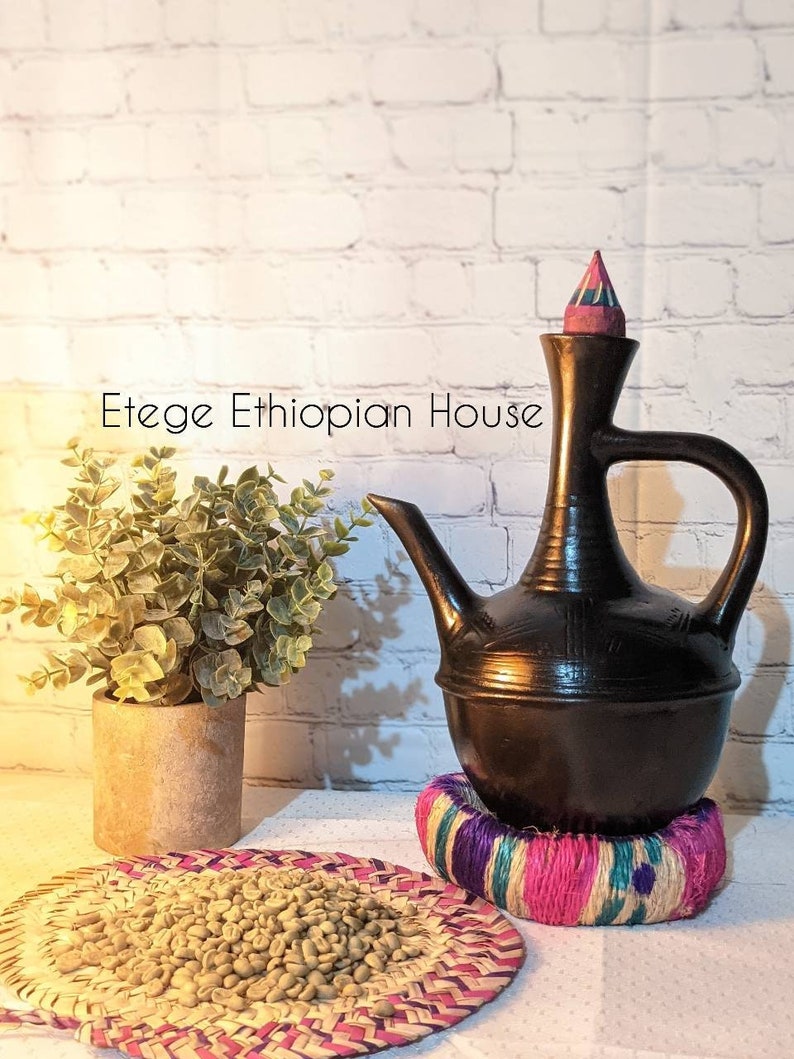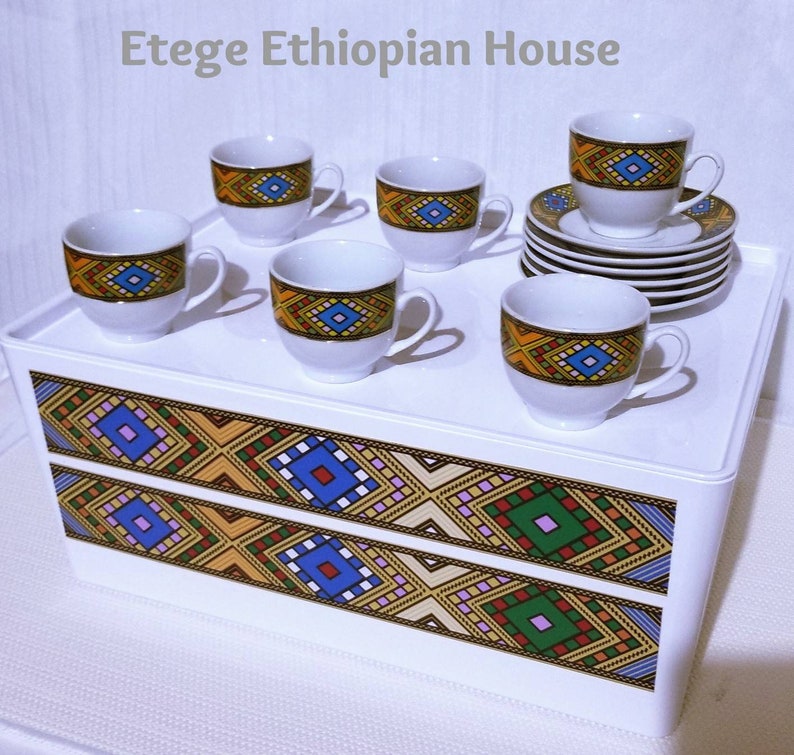As part of the then Abyssinia, Eritrea can also be described as the cradle of coffee and has its own coffee ceremony.
- Since 1993, the state has been independent of Ethiopia.
- As rain is becoming less and less reliable due to climate change, the farmers are struggling with cultivation issues, despite EU support.
Advertisment
Traditional Preparation: Coffee Ceremony
The Eritrean coffee ceremony Bunn is of course very similar to the Ethiopian Buna.
- The woman washes the green coffee beans and then roasts them in a small pot (Menkeshkesh).
- Particularly popular is coffee from the Ethiopian cultivation area Lekemti.
- When the beans are dark enough, during the coffee ceremony the pot is hand around so that everyone can enjoy the aroma.
- Then the beans are crushed or coarsely ground in a mortar (Maukatebune) and sprinkled on a small mat (Meshrefet)
- Afterwards the ground coffee is added into the pot (Jebena) together with water.
- Also other spices, like ginger (Jenjeble) can be added.
- Then the coffee is boiled on a small charcoal oven (Farnello) for about 30 min – but it should not boil over.
- Now for cooling, the coffee is therefore poured 3-4 times into the small pot – and back again in the Jebena.
- In parallel, on a piece of charcoal frankincense is fired in a separate container, so the fragrance fills the entire room.
- After the coffee is ready, it is poured from 30 cm high into small delicate Porcelain cups (finjal) with a lot of sugar.
- With the coffee salted popcorn (Ebaba), sometimes also Crispbread (Kitcha) and nuts or fine sweet pastry is served.
- The coffee is poured three times, so that a coffee ceremony takes 1-2 hours time. The oldest one gets the first cup.
- The first round coffee ‘awel’ is the strongest. Time for delicate conversations, such as a marriage application, an important business, political negotiations, or similar.
- The ‘kale’i’, the second round with a little weaker coffee stands for the health and the soul. This cup is regarded as part of a “transformation process of the mind”, which finds its climax or dissolution, in the 3rd cup, the ‘baraka’ (‘blessed’)
- Finally it is time to go, because the 4th cup ‘derdja’ is reserved for the household. Whoever leaves the coffee ceremony earlier is considered rude and it would be an offense for the hosts. You might think the coffee was not good.
For advertising links on this page the dealer may pay a commission. These advertising links are marked with an asterisk (*) – images and banners are marked with “Ads” or “Advertisment”. There are no costs for you. Find more information in the data protection regulations here.





